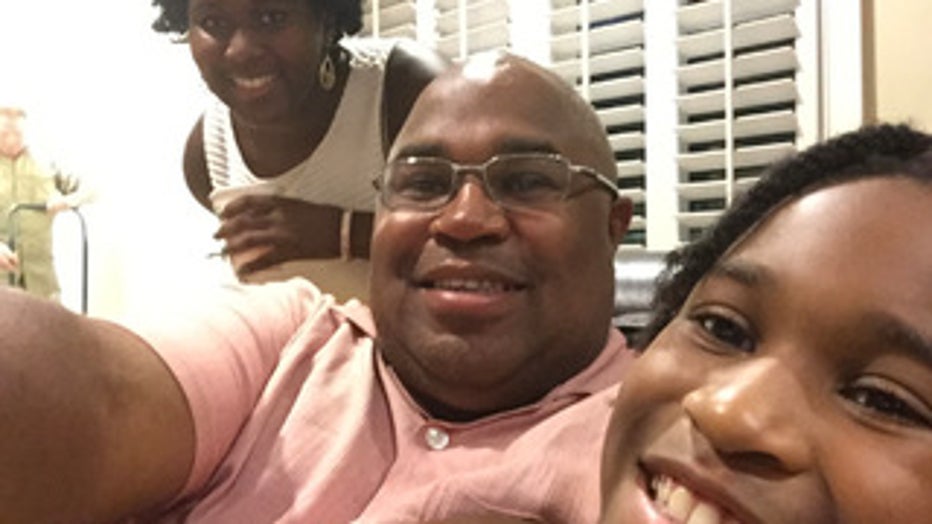In rapid heart failure, Cobb County man waited just 4 days for a donor heart

Marietta man survives sudden heart failure, life-saving transplant at 50
Arthur Vaughn says he's always been healthy. But after a seemingly random diagnosis, it took a heart transplant to save his life.
ATLANTA - It's been 3 years since Arthur Vaughn first came to Emory University Hospital, back in July of 2019.
A former college football player, and longtime volunteer with 100 Black Men of Atlanta, who'd always been healthy, had recently turned 50.
A week earlier, he had run his eighth Peachtree Road Race.
But now, Vaughn felt like he was dying.
"I couldn't breathe, and it became harder and harder to breathe," he remembers.
Vaughn was hospitalized with sudden, acute heart failure, diagnosed with something called giant cell myocarditis.
"Essentially, a virus entered my body and tricked my immune system into thinking my native heart wasn't my heart," he says. "So, my immune system attacked my heart, and most people who get giant cell myocarditis die from it."
Airlifted to Emory, Vaughn almost did die, says Dr. Divya Gupta, Medical Director for the Advanced Heart Failure and Transplant Program at Emory Healthcare.
"He was right on the cusp, honestly," Dr. Gupta says. "His story is quite remarkable, in that he got so sick, so quickly."
"They had to shock me multiple times to get my heart back into a normal rhythm," Vaughn says. "Over 30 times, they say. So, essentially I was dying on the table multiple times in my room."
On July 19, 2019, Vaughn was placed a heart transplant waiting list.
"On the 23rd, my surgeon came in and told me he was 99% sure he had a heart for me," he says.
Late that night, the married Marietta father of 3 was rolled into the OR.

Arthur Vaughn received a new heart in 2019, days after running the Peachtree Road Race in 2019.
"Ten hours later, I received a new heart," Vaughn says. "Now, I don't want people to think that's normal. It's very rare. Most people are on a transplant list for months, if not years. I was on the list for four days. Emory refers to me as their miracle patient."
But, life post-transplant has been challenging.
Vaughn says he struggled with depression, getting help from a therapist and a psychiatrist.
"I had to deal with my own mortality, so that changed me," he says. "It changed what's important and what's not important. It's changed my priorities."
He is getting ready to walk in his fourth Metro Atlanta American Heart Association Heart Walk, raising money for research into new treatments for heart disease, like a monthly infusion Vaughn receives.
It is designed to lower his risk of rejecting his new heart, a problem Dr. Gupta says is more common in African American heart recipients, like Vaughn
"Their bodies tend to form more antibodies, which are cells that try to affect or attack that heart," Vaughn says. "It happens in African Americans more often than it might in other groups of patients. So, our regimen of medications is specifically geared towards trying to prevent that."
Arthur Vaughn isn't sure why he survived.
"It's God, it's not me," he says. "He had a plan for me. I'm still trying to figure out what it is.
He thinks it might be to give other heart patients hope.
"I'm hopeful my story can be a blessing to others, and I can help others along their journey. So, they can still be sitting their three years after their transplant, just like me.

